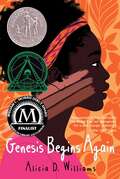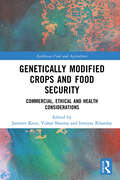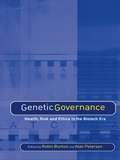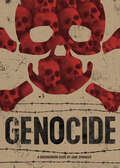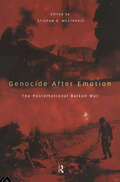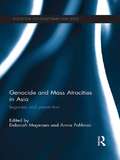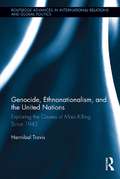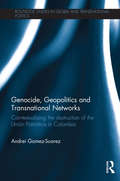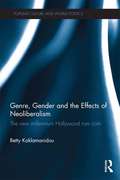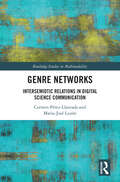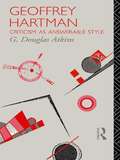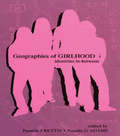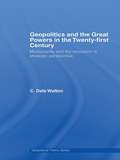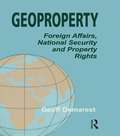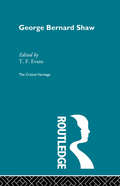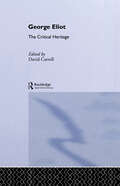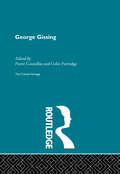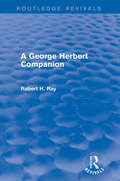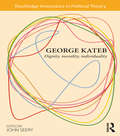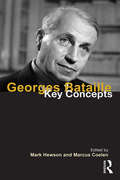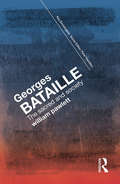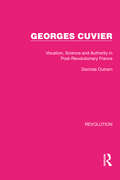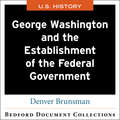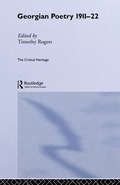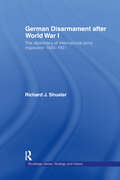Special Collections
Benetech’s Global Certified Accessible Titles
Description: Benetech’s GCA program is the first independent third-party EPUB certification to verify ebook accessibility. By creating content that is born accessible, publishers can meet the needs of all readers. Learn more: https://bornaccessible.benetech.org/
- Table View
- List View
Genesis Begins Again
by Alicia WilliamsThis deeply sensitive and powerful debut novel tells the story of a thirteen-year-old who must overcome internalized racism and a verbally abusive family to finally learn to love herself.
There are ninety-six things Genesis hates about herself. She knows the exact number because she keeps a list. Like #95: Because her skin is so dark, people call her charcoal and eggplant—even her own family. And #61: Because her family is always being put out of their house, belongings laid out on the sidewalk for the world to see.
When your dad is a gambling addict and loses the rent money every month, eviction is a regular occurrence. What’s not so regular is that this time they all don’t have a place to crash, so Genesis and her mom have to stay with her grandma.
It’s not that Genesis doesn’t like her grandma, but she and Mom always fight—Grandma haranguing Mom to leave Dad, that she should have gone back to school, that if she’d married a lighter skinned man none of this would be happening, and on and on and on.
But things aren’t all bad. Genesis actually likes her new school; she’s made a couple friends, her choir teacher says she has real talent, and she even encourages Genesis to join the talent show.
But how can Genesis believe anything her teacher says when her dad tells her the exact opposite? How can she stand up in front of all those people with her dark, dark skin knowing even her own family thinks lesser of her because of it? Why, why, why won’t the lemon or yogurt or fancy creams lighten her skin like they’re supposed to? And when Genesis reaches #100 on the list of things she hates about herself, will she continue on, or can she find the strength to begin again?
Genetically Modified Crops and Food Security
by Vishal Sharma and Jasmeet Kour and Imtiyaz KhandayThis book reviews a wide-range of genetically modified (GM) crops to understand how they are produced, the impacts on the agricultural industry, and their potential for improving food security. The production of GM crops has now become an invaluable asset in the agricultural toolbox. With a significant portion of the world suffering from hunger and poverty, this book examines how food security can be achieved through GM crops. A wide variety of crops are examined, from the earliest developments of GM tomatoes and potatoes to recent interest in the development of low-cost, high yielding biofuels, such as microalgae. Chapters also discuss the role of GM crops in pest management and the consequential reduction in the use of insecticides. Overall, this book provides an important synthesis of GM crops from their commercial value to the agricultural industry, as well as their potential for improving food security. This book will be of great interest to students and scholars of agricultural engineering, crop science, food biotechology, food security, and those interested in food and agriculture and sustainable development more broadly.
Genetic Governance
by Alan Petersen and Robin BuntonEthical and practical issues around genetic research are of major international concern, both in academia and in the public domain. Questions concerning what interventions are possible and appropriate with the increasing amount of genetic information available, challenge our understandings of ourselves, our health and wellbeing, and the role of medical ethics, public health, surveillance and risk. However there has been little reflection on the socio-political effects of this new genetic knowledge and the changes in practice that are currently impacting on our lives.Containing contributions from key international researchers, this book examines the broader issues of genetic debates and looks at how prediction and risk assessment is being changed in the arenas of health, medicine and reproduction, bringing new insight on the dangers of surveillance, regulation and increased inequality. Developed out of the Taylor and Francis journal Critical Public Health, the book considers the implications of developments in genetics for contemporary liberal governance, as well as for the future of healthcare and public health.
Genocide
by Jane SpringerWhat is genocide? Why does it happen, and what can be done to prevent it from happening again? These urgent questions are clearly and concisely explored for young adult readers. Some view the systematic killing, rape and destruction of homes in Darfur as a grave humanitarian crisis. For others, it’s a clear example of the ultimate crime against humanity — genocide. Who is right? What is genocide? What is the impact on humanity of wiping out entire groups of people? Who are the endangered human beings in today’s world? This thoughtful book helps young readers understand these and other difficult questions. Providing an overview of the history of genocide worldwide, the book explores the paradox that while a person who murders another person can be tried and even executed for the crime, a person who murders hundreds or thousands of people usually goes free. Using case studies the book points out their unique character while at the same time establishing important links between them. Most important, the book answers the question, what can be done to prevent genocide from happening in the future? "[The Groundwork Guides] are excellent books, mandatory for school libraries and the increasing body of young people prepared to take ownership of the situations and problems previous generations have left them." — Globe and Mail Correlates to the Common Core State Standards in English Language Arts: CCSS.ELA-LITERACY.RI.6.1 Cite textual evidence to support analysis of what the text says explicitly as well as inferences drawn from the text. CCSS.ELA-LITERACY.RI.6.2 Determine a central idea of a text and how it is conveyed through particular details; provide a summary of the text distinct from personal opinions or judgments. CCSS.ELA-LITERACY.RI.6.3 Analyze in detail how a key individual, event, or idea is introduced, illustrated, and elaborated in a text (e.g., through examples or anecdotes). CCSS.ELA-LITERACY.RI.6.6 Determine an author's point of view or purpose in a text and explain how it is conveyed in the text.
Genocide after Emotion
by Stjepan G. MeštrovićThe failure to adequately respond on the part of the major Western superpowers to the atrocities in the Balkans constitutes a major moral and political scandal. In Genocide after Emotion Mestrovic and the contributors thoroughly interrogate the war, its media coverage and response in the West. The result is alarming, both for the progress of the war and for the condition of our society today: the authors argue that the West is suffering from a "postemotional" condition - we are beyond caring about anything anymore.
Genocide and Mass Atrocities in Asia
by Deborah Mayersen and Annie PohlmanThe twentieth century has been labelled the ‘century of genocide’, and according to estimates, more than 250 million civilians were victims of genocide and mass atrocities during this period. This book provides one of the first regional perspectives on mass atrocities in Asia, by exploring the issue through two central themes. Bringing together experts in genocide studies and area specialists, the book looks at the legacy of past genocides and mass atrocities, with case studies on East Timor, Cambodia and Indonesia. It explores the enduring legacies of trauma and societal divisions, the complex and continuing impacts of past mass violence, and the role of transitional justice in the aftermath of mass atrocities in Asia. Understanding these complex legacies is crucial for the region to build a future that acknowledges the past. The book goes on to consider the prospects and challenges for preventing future mass atrocities in Asia, and globally. It discusses both regional and global factors that may impact on preventing future mass atrocities in Asia, and highlights the value of a regional perspective in mass atrocity prevention. Providing a detailed examination of genocide and mass atrocities through the themes of legacies and prevention, the book is an important contribution to Asian Studies and Security Studies.
Genocide, Ethnonationalism, and the United Nations
by Hannibal TravisGenocide, Ethnonationalism, and the United Nations examines a series of related crises in human civilization growing out of conflicts between powerful states or empires and indigenous or stateless peoples. This is the first book to attempt to explore the causes of genocide and other mass killing by a detailed exploration of UN archives covering the period spanning from 1945 through 2011. Hannibal Travis argues that large states and empires disproportionately committed or facilitated genocide and other mass killings between 1945 and 2011. His research incorporates data concerning factors linked to the scale of mass killing, and recent findings in human rights, political science, and legal theory. Turning to potential solutions, he argues that the concept of genocide imagines a future system of global governance under which the nation-state itself is made subject to law. The United Nations, however, has deflected the possibility of such a cosmopolitical law. It selectively condemns genocide and has established an institutional structure that denies most peoples subjected to genocide of a realistic possibility of global justice, lacks a robust international criminal tribunal or UN army, and even encourages "security" cooperation among states that have proven to be destructive of peoples in the past. Questions raised include: What have been the causes of mass killing during the period since the United Nations Charter entered into force in 1945? How does mass killing spread across international borders, and what is the role of resource wealth, the arms trade, and external interference in this process? Have the United Nations or the International Criminal Court faced up to the problem of genocide and other forms of mass killing, as is their mandate?
Genocide, Geopolitics and Transnational Networks
by Andrei Gomez-SuarezThis volume seeks to uncover and discuss the links between genocide, geopolitics and transnational networks. By studying the destruction of the Union Patrotica (UP) in Colombia - a process usually regarded as one of the extreme by-products of the Colombian armed conflict- through the lens of genocide studies, Gomez-Suarez challenges mainstream international relations, genocide and Colombian armed conflict studies. Moving beyond the analysis of the Colombian case, the book offers a broader interdisciplinary theoretical framework that also attends to transnational relations of perpetrators and resisters and the political economy of affective-dispositions for mapping genocidal conjuncture. Methodologically, the text aims to present a re-interpretation of what constitutes genocide beyond its legal definition and turn towards its political and ethical dimensions to create a conceptual framework in which genocide appears to turn ever more into a decentralized network of various actors that contributed to a genocidal mentality, which, ultimately, enable the destruction of the civil society networks. This work will be an important contribution to both the debates on genocide and international relations and the study of global connectivities.
Genre, Gender and the Effects of Neoliberalism
by Betty KaklamanidouThe romantic comedy has long been regarded as an inferior film genre by critics and scholars alike, accused of maintaining a strict narrative formula which is considered superficial and highly predictable. However, the genre has resisted the negative scholarly and critical comments and for the last three decades the steady increase in the numbers of romantic comedies position the genre among the most popular ones in the globally dominant Hollywood film industry. The enduring power of the new millennium romantic comedy, proves that therein lies something deeper and worth investigating. This new work draws together a discussion of the full range of romantic comedies in the new millennium, exploring the cycles of films that tackle areas including teen romance, the new career woman, women as action heroes, motherhood and pregnancy and the mature millennium woman. The work evaluates the structure of these different types of films and examines in detail the ways in which they choose to frame key contemporary issues which influence how we analyse global politics, including gender, class, race and society. Providing a rich understanding of the complexities and potential of the genre for understanding contemporary society, this work will be of interest to students and scholars of cultural & film studies, gender & politics and world politics in general.
Genre Networks
by Carmen Pérez-Llantada and María-José LuzónThis innovative book employs genre as a fruitful lens for exploring the complexity of science communication online and the new genre assemblages formed at the interface of multiple genres in digital environments. Pérez-Llantada and Luzón argue for a conceptualization of Science 2.0 that views digital genres in conjunction with other genres, accounting for the ways in which diverse Internet users choose different points of entry for accessing information on science of varied depth, views, and perspectives. Taking Swales’s conceptualization of forms of genre collectivity as its point of departure, the book puts forward this new understanding of multisemiotic genre assemblages in digital science communication, considering dimensions of hypertextuality, intertextuality, and multimodality in the interdependent relations between genres. The volume draws on a range of case studies each with a distinct genre assemblage and social agenda, exploring such areas as high stakes science, open peer review, science reproducibility, citizen science, and social media networking. Offering new directions for future research on genre studies and digital science communication, Genre Networks: Intersemiotic Relations in Digital Science Communication will be of interest to scholars in these fields, as well as those working in multimodality, language and communication, and languages for academic purposes.
Geoffrey Hartman
by G. Douglas Atkins`The critic explicitly acknowledges his dependence on prior words that make his word a kind of answer. He calls to other texts "that they might answer him."' Geoffrey Hartman is the first book devoted to an exploration of the `intellectual poetry' of the critic who, whether or not he `represents the future of the profession', is a unique and major voice in twentieth-century criticism. Professor Atkins explains clearly Hartman's key ideas and places his work in the contexts of Romanticism and Judaism on which he has written extensively. In Geoffrey Hartman he provides a valuable introduction to a major critical voice who has called into question our assumptions about the distinction between commentary and imaginative literature.
Geographies of Girlhood
by Pamela J. Bettis and Natalie G. AdamsGeographies of Girlhood: Identities In-Between explores how adolescent girls come to understand themselves as female in this culture, particularly during a time when they are learning what it means to be a woman and their identities are in-between that of child and adult, girl and woman. It illuminates the everyday realities of adolescent girls and the real issues that concern them, rather than what adult researchers think is important to adolescent girls. The contributing authors take seriously what girls have to say about themselves and the places and discursive spaces that they inhabit daily. Rather than focusing on girls in the classroom, the book explores adolescent female identity in a myriad of kid-defined spaces both in-between the formal design of schooling, as well as outside its purview--from bedrooms to school hallways to the Internet to discourses of cheerleading, race, sexuality, and ablebodiness. These are the geographies of girlhood, the important sites of identity construction for girls and young women. This book is situated within the fledgling field of Girls Studies. All chapters are based on field research with adolescent girls and young women; hence, the voices of girls themselves are primary in every chapter. All of the authors in the text use the notion of liminality to theorize the in-between spaces and places of schools that are central to how adolescent girls construct a sense of self. The focus of the book on the fluidity of femininity highlights the importance of race, class, sexual orientation, and other salient features of personal identity in discussions of how girls construct gendered identities in different ways. Geographies of Girlhood: Identities In-Between challenges scholars, professionals, and students concerned with gender issues to take seriously the everyday concerns of adolescent girls. It is recommended as a text for education, sociology, and women's studies courses that address these issues.
Geopolitics and the Great Powers in the 21st Century
by C. Dale WaltonThis book argues that in the twenty-first century Eastern Eurasia will replace Europe as the theatre of decision in international affairs, and that this new geographic and cultural context will have a strong influence on the future of world affairs. For half a millennium, the great powers have practised what might be called ‘world politics’, yet during that time Europe, and small portions of the Near East and North Africa strategically vital to Europe, were the ‘centres of gravity’ in international politics. This book argues that the ‘unipolar moment’ of the post-Cold War era will not be replaced by a US-China ‘Cold War’, but rather by a long period of multipolarity in the twenty-first century. Examining the policy goals and possible military-political strategies of several powers, this study explains how Washington may play a key role in eastern Eurasian affairs if it can learn to operate in a very different political context. Dale Walton also considers the rapid pace of technological change and how it will impact on great power politics. Considering India, China, the US, Russia, Japan, and other countries as part of a multipolar system, he addresses the central questions that will drive US policy in the coming decades. Geopolitics and the Great Powers in the 21st Century will be of interest to students of international security, military history, geopolitics, and international relations.
Geoproperty
by Geoff DemarestSome innovations create new strategic property and new conflicts. Demarest argues that we have not reached the end of history and modern man will continue to fight over property as before, but the property will be of a post-modern character, such as electronic wavelengths and genetic codes.
George Bernard Shaw
by T. F. EvansThis set comprises 40 volumes covering nineteenth and twentieth century European and American authors. These volumes will be available as a complete set, mini boxed sets (by theme) or as individual volumes. This second set compliments the first 68 volume set of Critical Heritage published by Routledge in October 1995.
George Eliot
by David CarrollThe Critical Heritage gathers together a large body of critical sources on major figures in literature. Each volume presents contemporary responses to a writer's work, enabling students and researchers to read for themselves, for example, comments on early performances of Shakespeare's plays, or reactions to the first publication of Jane Austen's novels.The carefully selected sources range from landmark essays in the history of criticism to journalism and contemporary opinion, and little published documentary material such as letters and diaries. Significant pieces of criticism from later periods are also included, in order to demonstrate the fluctuations in an author's reputation.Each volume contains an introduction to the writer's published works, a selected bibliography, and an index of works, authors and subjects.The Collected Critical Heritage set will be available as a set of 68 volumes and the series will also be available in mini sets selected by period (in slipcase boxes) and as individual volumes.
George Gissing
by Pierre Coustillas and Colin PartridgeThe Critical Heritage gathers together a large body of critical sources on major figures in literature. Each volume presents contemporary responses to a writer's work, enabling students and researchers to read for themselves, for example, comments on early performances of Shakespeare's plays, or reactions to the first publication of Jane Austen's novels.The carefully selected sources range from landmark essays in the history of criticism to journalism and contemporary opinion, and little published documentary material such as letters and diaries. Significant pieces of criticism from later periods are also included, in order to demonstrate the fluctuations in an author's reputation.Each volume contains an introduction to the writer's published works, a selected bibliography, and an index of works, authors and subjects.The Collected Critical Heritage set will be available as a set of 68 volumes and the series will also be available in mini sets selected by period (in slipcase boxes) and as individual volumes.
A George Herbert Companion
by Robert H. RayFirst published in 1995, this title provides the reader with a compendium of useful information for any reader of George Herbert to have at hand. It includes key biographical information, situates the poetry in its historical and cultural context, and, where appropriate, explains theological concepts and traditions which have a direct bearing on the verse. The aim throughout is to enhance understanding and appreciation, without being exhaustive. A George Herbert Companion will be of most use to general readers and undergraduate students coming to this poetry for the first time, and will interest students of Anglican Caroline theology and hymnology.
George Kateb
by John SeeryGeorge Kateb’s writings have been innovatory in exploring the fundamental quandary of how modern democracy—sovereignty vested in the many—might nevertheless protect, respect, promote, even celebrate the singular, albeit ordinary individual. His essays, often leading to unexpected results, have focused on many inter-related topics: rights, representation, constitutionalism, war, evil, extinction, punishment, privacy, patriotism, and more. This book focuses in particular on his thought in three key areas: Dignity These essays exhibit the breadth and complexity of Kateb’s notion of dignity and outline some implications for political theory. Rather than a solely moral approach to the theory of human rights, he elaborates a human-dignity rationale for the very worth of the human species Morality Here Kateb challenges the position that moral considerations are often too demanding to have a place in the rough-and-tumble of modern politics and political analysis. Rejecting common justifications for the propriety of punishment, he insists that state-based punishment is a perplexing moral problem that cannot be allayed by repairing to theories of state legitimacy. Individuality These essays gather some of Kateb’s rejoinders and correctives to common conceptions and customary critiques of the theory of democratic individuality. He explains that Locke’s hesitations and religious backtracking are instructive, perhaps as precursors for the ways in which vestigial beliefs can still cloud moral reasoning.
Georges Bataille
by Mark Hewson and Marcus CoelenGeorges Bataille (1897 - 1962) was a philosopher, writer, and literary critic whose work has had a significant impact across disciplines as diverse as philosophy, sociology, economics, art history and literary criticism, as well as influencing key figures in post-modernist and post-structuralist philosophy such as Jacques Derrida and Michel Foucault. In recent years, the number of works published on Georges Bataille, as well as the variety of contexts in which his work is invoked, has markedly increased. In Georges Bataille: Key Concepts an international team of contributors provide an accessible introduction to and survey of Bataille's thought. The editors’ introduction provides an overview of Bataille’s work, while the chapters in the first section cover the social, political, artistic and philosophical contexts that shaped his thought. In the second part, each chapter engages with a key theme in Bataille’s philosophy, including: art, eroticism, evil, inner experience, heterology, religion, sacrifice, and sovereignty. The final chapter addresses Bataille’s literary writings. Georges Bataille: Key Concepts is an invaluable guide for students from across the Humanities and Social Sciences, coming to Bataille’s work for the first time. Contributors: Giulia Agostini, Elisabeth Arnould-Bloomfield, Tiina Arppe, Marcus Coelen, Simonetta Falasca-Zamponi, Patrick ffrench, Marina Galletti, Nadine Hartmann, Mark Hewson, Andrew Hussey, Stuart Kendall, Claire Nioche, Gerhard Poppenberg, and Michèle Richman.
Georges Bataille
by William PawlettIn this comprehensive and engaging study Georges Bataille’s central ideas – the sacred, community and eroticism – are explored in detail. Bataille’s project to understand social bonds and energies at their most fundamental level and to re-energise society by challenging individualism is argued to be of continuing relevance to sociological thought. Bataille’s infamous Collège de Sociologie is placed in the intellectual context of Durkheimian and Maussian sociology. Social effervescence, gift exchange, and the dual, ambivalent and volatile nature of the sacred emerge as the central threads of Bataille’s thought, ideas which challenge both capitalist hegemony and the reductive notion of society as exclusively normative and repressive. The study concludes by applying Bataille’s ideas to contemporary issues including de-secularisation and the rise of religious fundamentalism, the vicarious experience of transgressive violence, and finally, to consumerism and the violence of globalisation. The study seeks to reposition Bataille as a key figure in sociological theory.
Georges Cuvier
by Dorinda OutramThis book, first published in 1984, examines the lifetime of Georges Cuvier, and in his constant and varying struggles to retain his position both as a politician and as a leading naturalist we find displayed almost all of the political tensions of Restoration France. Our understanding of the new French intellectual elite is enhanced if we can explain what sort of power this group wielded, and how it related to the structure of politics as a whole. Cuvier’s career epitomises this relationship to the highest degree. Examination of the building of his career under the Directory and Empire offers many new insights into the way the expanding market for science, the restructuring of society as a whole, and the moral authority of science itself could be utilised as resources in the making of a reputation. The influence of scientific competition and controversy on Cuvier’s scientific work is examined at length, and it is argued that they exerted a decisive effect on the structure of his biological and geological thinking.
George Washington and the Establishment of the Federal Government
by Denver BrunsmanThis document collection illustrates how George Washington and other leaders responded to critical issues surrounding the establishment of the federal government, including the power of the executive branch, the rights of enslaved workers and other marginalized groups, and the role, if any, of political parties. After completing the unit, students should be able to answer the central question: What were the challenges of establishing the federal government, and how successfully did George Washington and his administration answer these challenges? Through this unit, students will engage with primary sources, an author-provided learning objective, central question, and historical background.
Georgian Poetry 1911-22
by Timothy RogersThis set comprises 40 volumes covering 19th and 20th century European and American authors. These volumes will be available as a complete set, mini boxed sets (by theme) or as individual volumes. This second set complements the first 68 volume set of Critical Heritage published by Routledge in October 1995.
German Disarmament After World War I
by Richard J. ShusterGerman Disarmament After World War I examines the Allied disarmament of Germany and the challenges that such an enormous task presented to international efforts in enforcing the Treaty of Versailles. In the twenty-first century, disarmament remains a critical issue for the International community. This new book focuses on three key areas and lessons of Allied disarmament operations from 1920-31: the role and experience of international arms inspectors working amidst an embittered German populace the ramifications of the divergent disarmament priorities of the leaders of the disarmament coalition the effectiveness of united Allied policies backed by sanctions. These major issues are examined within the overall context of the assessment of Allied disarmament operations in Germany. While some historians perceive German disarmament as a failure, this book argues that arms inspectors successfully destroyed Germany’s ability to pose a military threat to European security. This new study shows how the destructive legacy of war convinced the victorious nations, especially Britain and France, of the importance in minimizing German military strength. French post-war security concerns, however, were often faced with the unwillingness of Britain to enforce the totality of the military articles of the treaty. German obstruction also influenced Allied disarmament policies. German Disarmament After World War I examines the initial effectiveness of Allied disarmament efforts in Germany and explains how they ultimately disappeared through diverging conceptions of a post-war world. This book will be of great interest to all students of disarmament, the interwar period and of military history, modern European history and security studies.
